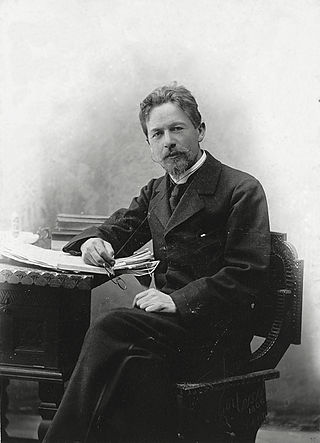
Anton Pavlovich Chekhov was a Russian playwright and physician. His career as a playwright produced four classics, and his best short stories are held in high esteem by writers and critics. Along with Henrik Ibsen and August Strindberg, Chekhov is often referred to as one of the three seminal figures in the birth of early modernism in the theatre. Chekhov was a physician by profession. "Medicine is my lawful wife", he once said, "and literature is my mistress."

Konstantine Gamsakhurdia was a Georgian writer and public figure. Educated and first published in Germany, he married Western European influences to purely Georgian thematic to produce his best works, such as The Right Hand of the Grand Master and David the Builder. Hostile to the Soviet rule, he was, nevertheless, one of the few leading Georgian writers to have survived the Stalin-era repressions, despite exile to a White Sea island and several arrests. His works are noted for their character portrayals of great psychological insight. Another major feature of Gamsakhurdia's writings is a new subtlety he infused into Georgian diction, imitating an archaic language to create a sense of classicism.
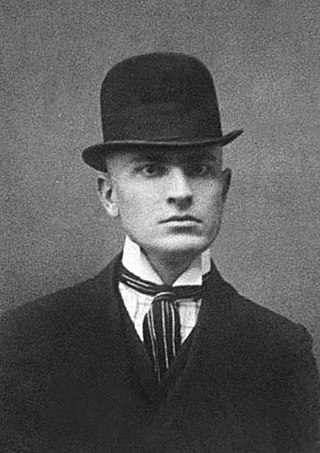
Grigol Robakidze was a Georgian writer, publicist, and public figure primarily known for his prose and anti-Soviet émigré activities.

Constance Clara Garnett was an English translator of nineteenth-century Russian literature. She was the first English translator to render numerous volumes of Anton Chekhov's work into English and the first to translate almost all of Fyodor Dostoevsky's fiction into English. She also rendered works by Ivan Turgenev, Leo Tolstoy, Nikolai Gogol, Ivan Goncharov, Alexander Ostrovsky, and Alexander Herzen into English. Altogether, she translated 71 volumes of Russian literature, many of which are still in print today.

Chekhov's gun is a narrative principle that states that every element in a story must be necessary, and irrelevant elements should be removed. For example, if a writer features a gun in a story, there must be a reason for it, such as it being fired some time later in the plot. All elements must eventually come into play at some point in the story. Some authors, such as Hemingway, do not agree with this principle.
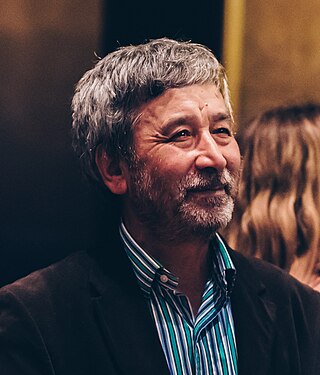
Hamid Ismailov born May 5, 1954, in Tokmok, Kyrgyzstan, is an Uzbek journalist and writer who was forced to flee Uzbekistan in 1992 and came to the United Kingdom, where he took a job with the BBC World Service. He left the BBC on 30 April 2019 after 25 years of service. His works are banned in Uzbekistan.
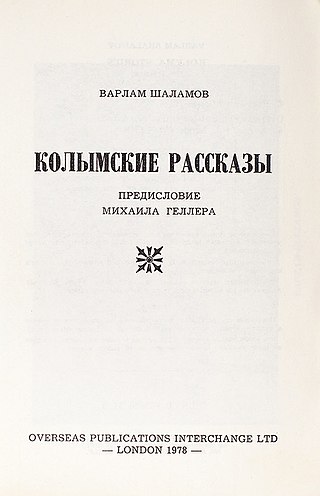
Kolyma Tales or Kolyma Stories is the name given to six collections of short stories by Russian author Varlam Shalamov, about labour camp life in the Soviet Union. Most stories are documentaries and reflect the personal experience by Shalamov. He began working on this book in 1954 and continued until 1973. The book is considered Shalamov's magnum opus as a writer and one of the important works of Russian 20th-century literature. The collections of stories are titled Kolyma Tales, The Left Bank, The Virtuoso Shovelman, Essays on the Criminal World and Resurrection of the Larch.

The Literature of Georgia: A History by Donald Rayfield, professor of Russian and Georgian at the University of London, is the first and the most comprehensive study of the literature of Georgia that has ever appeared in English. The work deals with Georgia's 1,500-year literary tradition from 5th-century hagiographic writings to 20th-century poetry and prose. The book explores the diverse influences which have affected the Georgian literature – from Greek and Persian to Russian and modern European, and the folklore of the Caucasus, and also includes translations of several pieces of the Georgian poetry.

Otar Chiladze was a Georgian writer who played a prominent role in the resurrection of Georgian prose in the post-Joseph Stalin era. His novels characteristically fuse Sumerian and Hellenic mythology with the predicaments of a modern Georgian intellectual.
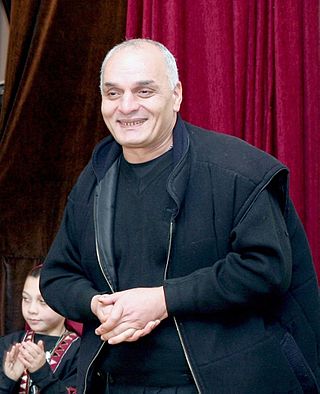
Mikheil "Miho" Mosulishvili is a Georgian writer and playwright.

Vazha-Pshavela (ვაჟა–ფშაველა) is a 2011 Georgian Biographical novel by author Miho Mosulishvili.
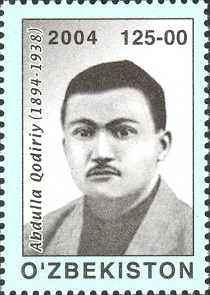
Abdulla Qodiriy, also spelt Abdullah Qodiriy and Abdullah Kadiri in English, was an Uzbek playwright, poet, writer, and literary translator. Qodiriy was one of the most influential Uzbek writers of the 20th century. He introduced realism into Uzbek literature through his historical novels and influenced many other Central Asian novelists.
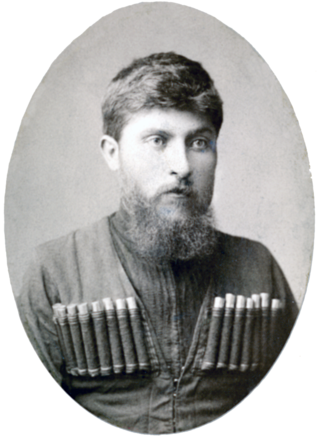
Vazha-Pshavela, simply referred to as Vazha, is the pen name of the Georgian poet and writer Luka Razikashvili.

A Man Was Going Down the Road is a novel written by Otar Chiladze in 1973. It was translated into English by Donald Rayfield in 2012.

Host and Guest is an epic poem by the Georgian poet, writer and philosopher Vazha-Pshavela. The poem was first published in 1893 in Tbilisi, and it is considered to be the "masterpiece of the Georgian literature". It is compulsory reading in Georgian schools. A film based on the poem was made in 1967 by Tengiz Abuladze.
"A Misfortune", sometimes translated "Misfortune", is an 1886 story by Anton Chekhov. First published in Novoye Vremya, the story concerns Sofya Petrovna, the young wife of a country notary, whose attempts to turn away a suitor only expose her own desire for him and drive her toward an affair. The main theme is sexual enthrallment, a frequent concern in Chekhov's work during this period.
"The Student" is a short story by Anton Chekhov first published on April 16, 1894, in the newspaper Russkie Vedomosti. It tells of a clerical student returning home on a cold Good Friday evening who stops at a fire and meets two widows. He recounts to them the canonical Gospels' story of the Denial of Peter and upon finishing, notes that these two women are deeply moved, leading him to conclude that all of history is connected through truth and beauty.

Sakhalin Island is a book by Anton Chekhov written and published in 1891–1893. It consists of "travel notes" written after Chekhov's trip to the island of Sakhalin in summer and autumn of 1890. The book is based on the writer's personal travel experience, as well as on extensive statistical data collected by him. The English translation came out in 1967 under the title The Island: A Journey to Sakhalin.

Mindia is an opera in three acts composed by Otar Taktakishvili to a libretto in Georgian by Revas Tabukashvili. Based on the poem The Snake-eater by Vazha-Pshavela, it premiered on 23 July 1961 at the Tbilisi Opera and Ballet Theatre. The libretto also has versions in Russian and German.
















